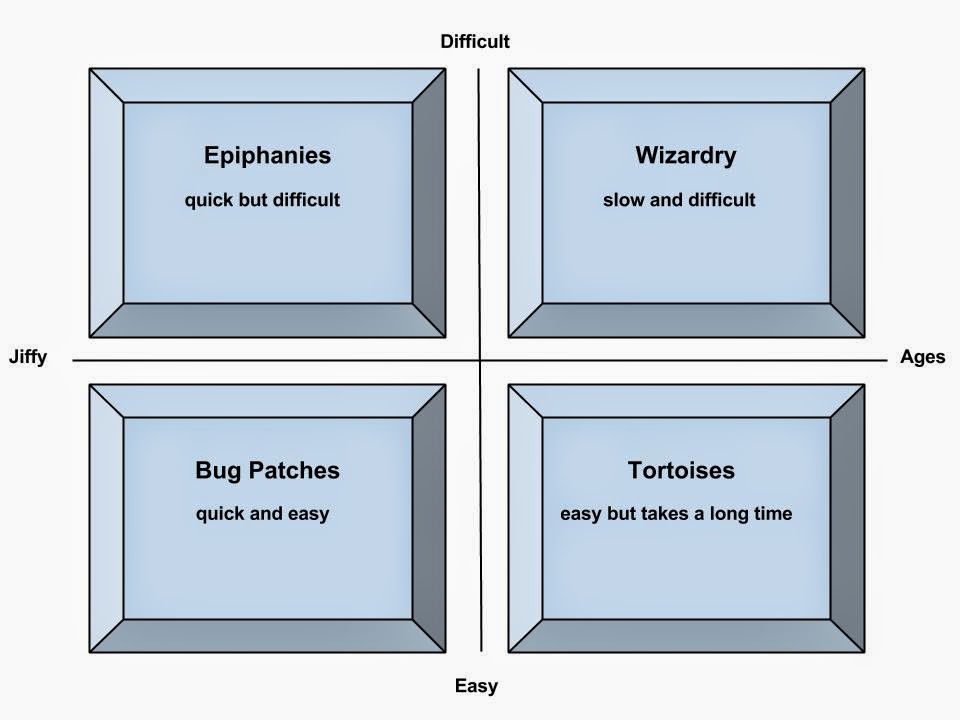.jpg)
[If you have a projector, it’s useful to have the image from the blogpost visible]
.jpg)
I imagine a grid of rationality skill acquisition, with four kinds of skills. Things farther to the left take less time to learn, while things farther to the right require some combination of processing time, many iterations, and long strings of dependencies on other skills that must be acquired serially. Things closer to the bottom are easy to make progress on, while things closer to the top are difficult and likely to fail. On the bottom left are “Bugfixes,” which are quick and easy patches. Call the top left “Epiphanies,” which are hard to understand but quick once your find out the trick. Call the top right “Wizardry,” which is hard to understand and also takes a long time. While “difficult” and “takes a long time to learn” may be highly correlated, I don’t think they’re the same thing.
It can take a child quite a while to learn long division. But once you’ve got all the pieces of basic arithmetic, the final procedure is pretty easy. If you’ve got detailed instructions in front of you, it can even be carried out correctly on the very first try. And the pieces themselves are pretty straightforward. But consider the simplest problems in elementary algebra. In addition to the basic arithmetic operations, you need the concept of a variable.
But “variable” is fundamentally different. It requires a new kind of idea. It requires abstraction, which is not only new but inferentially distant. There’s not really such a thing as “half-way understanding variable”. You get it or you don’t, and when you get it, elementary algebra suddenly makes sense. “Variable” is probably an epiphany.
We haven’t talked about the bottom right of that grid. Some skills are easy to make a little progress with, but take a long time. Let’s call them Tortoise Skills. Some things are just a matter of practice. Making a free throw in basketball. Driving a car, especially one with a manual transmission. Even some skills that have a bit of epiphany involved, like learning a new language or safely climbing tall mountains, tend to be bottlenecked on putting in the time and practice.
I’ve learned some hard things, and I can’t think of a single skill I’ve gained that simply could not be broken down into quick and easy bug patches, getting-my-mind-around-it-ness, and boatloads of small, consistent efforts. If this is true, it’s very good news! It means that if I can look at the Wizard skills I desire and break them down into the epiphanies and bug patches I already have, I may be able to ask myself, “What part of this puzzle is going to take small, consistent effort?” And I might well come up with a useful answer!
You can’t have all the epiphanies and speak a new language by tomorrow. Don’t be afraid of practice.
Speaker: If I can become stronger,
Audience: I desire to believe that I can become stronger;
Speaker: If I cannot become stronger,
Audience: I desire to believe that I cannot become stronger;
Together: Let me not become attached to beliefs I may not want.